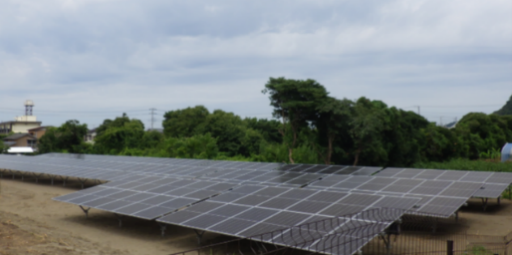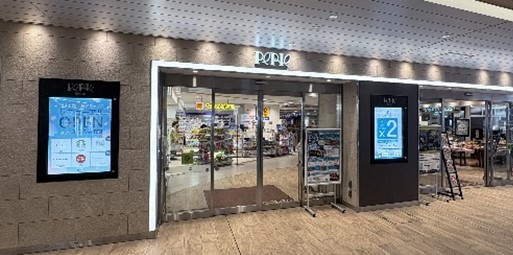The JERA Group and The JR East Group to Implement an Offsite Corporate Power Purchase Agreement (PPA) to Supply “Produced in Chiba, Consumed in Chiba” Solar Power to Four PERIE Station Building Facilities in Chiba Prefecture2025/07/30
○ JERA Co., Inc. (“JERA”) and East Japan Railway Company (“JR East”) have concluded a basic agreement aimed at the implementation of offsite corporate power purchase agreements (PPAs) [a mechanism for supplying electricity consumers with electric power and environmental value from power stations located elsewhere] and are moving forward with such initiatives.1
○ Chiba Station Building Co., Ltd. (“Chiba Station Building”) will implement a “Produced in Chiba, Consumed in Chiba”2 offsite corporate PPA3 to supply PERIE Nishi-Chiba (Main), PERIE Kaihimmakuhari (West), PERIE Kaihimmakuhari (East), and the PERIE+Plus building with renewable power from what is being nicknamed PERIE Solar Power Plants in Chiba Prefecture beginning 1 August 2025. JERA will be the solar power producer, JERA Cross Co., Inc. (“JERA Cross”) the aggregator,4 and East Japan Railway Trading Co., Ltd. (“EJRT”) the electricity retailer.
○ The JERA Group and the JR East Group will continue their efforts to achieve the decarbonization of society through offsite corporate PPAs for renewable energy.
1 See 15 January 2025 press release:“Implementing an Offsite Corporate Power Purchase Agreement (PPA) between JERA and East Japan Railway Company to Supply Solar Power to Atre and Lumine”
2 The term chisan chisho (地産地消, “local production, local consumption”) refers to a movement encouraging the consumption of products and resources in the areas where they are produced. Chiba Prefecture uses the same phrase to promote the use of local products at, for example, prefectural schools, but substitutes the chi (千) of Chiba for the chi (地, “local”) of the original.
3 An offsite PPA is a mechanism in which power generation facilities are located separately from the facilities where the power is used. The generated power is delivered to the power consumer through the transmission and distribution grid. A corporate PPA is a power supply contract between a power producer or electricity retailer and an electricity consumer for the generation and sale of renewable energy.
4 A business that centrally manages multiple energy resources such as power generation and storage facilities.
1. Project Overview
Power generated at four JERA-owned solar power plants in Chiba Prefecture (total capacity 300kW), together with its environmental value, will be aggregated by JERA Cross and supplied, through electricity retailer EJRT, to PERIE Nishi-Chiba (Main) and three other facilities operated by Chiba Station Building. A “Produced in Chiba, Consumed in Chiba” offsite corporate PPA will be implemented in which renewable energy generated at solar power plants in Chiba Prefecture is consumed at PERIE facilities within the prefecture. Nicknaming the solar power plants the PERIE Solar Power Plants is intended to foster a sense of familiarity within the community and express our commitment to local energy.

• Start of Supply
1 August 2025 (planned)
• Supply Destinations
PERIE Nishi-Chiba (Main), PERIE Kaihimmakuhari (West), PERIE Kaihimmakuhari (East), and the PERIE+Plus building
• Solar Power Plant Overview
|
Name |
Nickname |
Location |
Capacity (kW) |
|
JERA Solar Tateyama 4 |
PERIE Solar Power Plant Tateyama Nago |
Nago, Tateyama-shi, Chiba-ken |
50 |
|
JERA Solar Katori 4 |
PERIE Solar Power Plant Katori Yamanobe |
Yamanobe, Katori-shi, Chiba-ken |
50 |
|
JERA Solar Katori 8, 9, 10 |
PERIE Solar Power Plant Katori Hachihon |
Hachihon, Katori-shi, Chiba-ken |
150 |
|
JERA Solar Choshi 24 |
PERIE Solar Power Plant Choshi Ashisaki-cho |
Ashisaki-cho, Choshi-shi, Chiba-ken |
50 |


• Benefits of Implementation
Approximate reduction in CO2 emissions of 236 t-CO2/year (equivalent to 140 ordinary households)
2. Initiatives by Each Company
(1) JERA Group
The JERA Group, under its JERA Zero CO2 Emissions 2050 commitment to aim for net-zero CO2 emissions from its domestic and international operations by 2050, is working both to both expand its use of renewable energy and to develop zero-emissions thermal that emits no CO2 during power generation.
(2) JR East Group
The JR East Group formulated its Zero Carbon Challenge 2050 long-term environmental goal in 2020 and is taking on the challenge of achieving net-zero CO2 emissions across the entire JR East Group by FY 2050.


